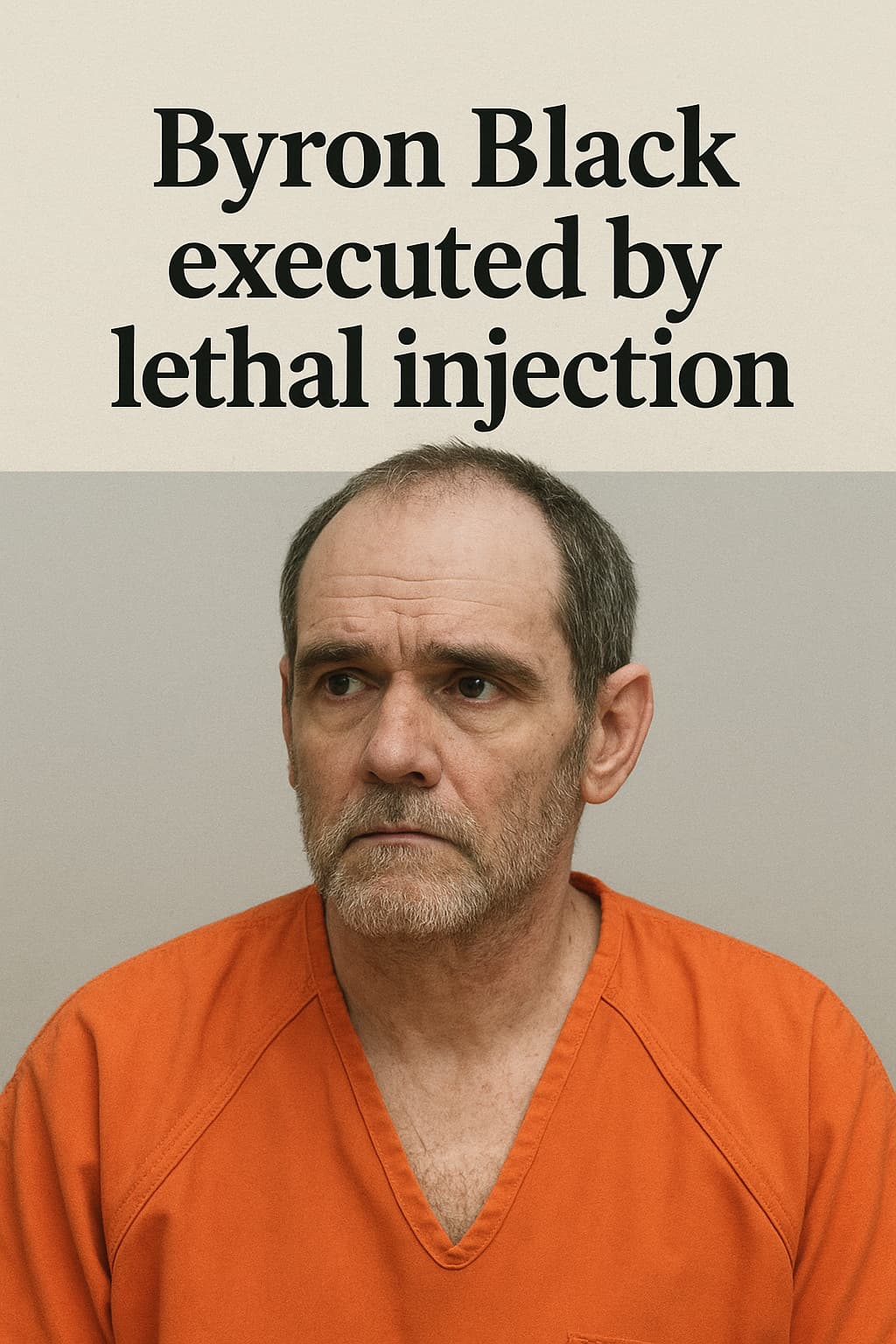On August 5, 2025, longtime death row inmate Byron Black was executed by lethal injection. Convicted of three charges of first-degree murder for the deaths of his then-girlfriend Angela Clay and her two young daughters, Black spent 36 years on death row at the Riverbend Maximum Security Institution in Nashville. He was given the option of death by electric chair or lethal injection since he was sentenced before 1999 and is the second person to be executed in Tennessee this year, the first being Oscar Smith in May.
For decades, it has not been Black’s maintained claims of innocence that have consistently made headlines, but rather his alleged intellectual disability. After his arrest, the Nashville Banner reports that multiple tests were administered to him from 1993 to 2021 and found his IQ to be below 70. Let’s take a look at the legal issue of competency and how it played out over the course of Black’s life.
What Is “Competency to Stand Trial” Legally Speaking?
Tennessee follows the Dusky standard, established by the U.S. Supreme Court in 1960. Under Dusky, “the test for determining if a defendant is competent to stand trial is whether he has sufficient present ability to consult with his lawyer with a reasonable degree of rational understanding and whether he has a rational as well as factual understanding of the proceedings against him.” (State v. Johnson, 673 S.W.2d 877, Tenn. Crim. App. 1984)
The Competency Assessment Instrument is most often used by the state as a structured interview guide to determine a defendant’s competency to stand trial. It breaks down the various broader categories of questions under the Dusky standard, such as understanding of court procedures and appraisal of likely outcomes.
A Lengthy Appeals Process
Questions about Black’s competency were raised – and have been raised consistently – since his trial in 1989. His defense attorney during his murder trial told the court that Black was “delusional about what was going on” and “lacked the ability to process” the court proceedings, including not understanding that he had already been found guilty when he appeared at his sentencing hearing.
Since then, his lawyers have provided more information about Black’s mental disabilities to both the courts and the media. They described him as having prenatal alcohol and toxic lead exposure, as well as an inability to complete basic chores by himself. They also said that his mental capacity has since diminished even further due to dementia and declining physical health.
The final blow came in 2022, when the state conceded that Black would be found to be intellectually disabled and thus not able to be sentenced to death if the current standard was applied to his case. Davidson County District Attorney Glenn Funk even asked a judge to vacate his death sentence for that very reason. Because the issue had already been raised and dismissed in a motion 20 years prior, however, the court could not consider it anew, despite the change in the law. This meant that Black’s death penalty stood, despite the execution of people like Black now being explicitly prohibited.
Lingering Concerns
The validity of the death penalty is a controversial issue. When there is a well-documented case with such strong questions of competency as with Byron Black’s, however, where the timing of the motions with the uncertainty of changing legal standards can make all the difference, the legal community can’t help but take notice. Black’s longtime defense attorney told The Guardian after his execution, “The law was wrong, the law changed, and he couldn’t get due process because we’d raised it before. And I just cannot reconcile that.”
Regardless of this loophole that ultimately kept Black on death row, State Attorney General Jonathan Skrmetti said that “Black filed a dozen separate legal challenges to avoid his sentence. Every one of them failed. Byron Black’s execution was entirely legal.”
Questions About Your Own Case? Contact Us Today
When your freedom – and in cases like Byron Black’s, your life – is on the line, results matter. Our attorneys know how to negotiate, challenge evidence, and fight for you in court. Don’t leave your future to chance. Contact PNC Law today at (615) 785-2000 or philip@tncriminaldefenseattorney.com and let us start building your defense.

